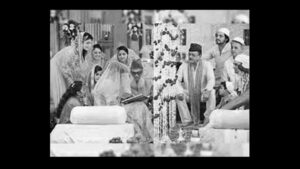Table of Contents
Introduction
Muslim law is largely uncodified in India. Muslim law has been derived from various codified and uncodified sources like- Quran, Ijma, Qiyas, customs, urf, precedents, equity and various legislations. Muslim marriage is a civil contract where two persons enter into contract with the view of sexual pleasure and legalisation of children. The Islamic concept of marriage is different from Hindu marriage as in Hindu it is sacrament bond but in Islam, it is a contract.
According many philosophers, marriage in Islam is a religious duty. Everyone must marry in order to fulfil one’s desire of procreation of kids legally.
Essentials of a valid Muslim marriage
- Proposal and acceptance
- Competency of parties
- Free consent of parties
- Dower or mahr
- Free from Legal Disability

Proposal and acceptance– proposal in urdu is stated as ijab and acceptance of the proposal is ‘qubul’ in urdu. Both ijab as well as qubul has to be done in same meeting and in the presence of proper and competent witnesses otherwise it will be not be a valid marriage
Competency of parties-both partied must attained their puberty, which means they must be major. Bride and groom must be of sound mind while performing nikah and should be Muslim.
Free consent of parties– while reading nikah free consent of both the parties is required that means consent must be free from coercion, fraud, mistake of fact in order to term as free consent.
Dower or mahr-Dower or mahr is defined as the sum of money or property given by husband to his wife in consideration of marriage contract as a mark of respect to the wife.
Free from Legal Disability-Under Muslim law, marriage is not permitted under certain circumstances and this restrictions/prohibition can be divided into three parts: Absolute Prohibition, Relative Prohibition, and Miscellaneous Prohibition.
Muslim marriages are classified into four:
Sahih Marriage (valid marriage)
When all the legal requirements are fulfilled and there are no prohibitions affecting the parties, then the marriage is correct or ‘sahih’.
Effects of a valid marriage
- The cohabitation between the husband and the wife becomes lawful.
- The children born out of a valid marriage are legitimate and they have right to inherit their parent’s properties.
- Mutual rights of inheritance between husband and wife are established. That is to say, after the death of the husband, the wife is entitled to inherit the husband’s properties and after the wife’s death, husband may also inherit her properties.
- Prohibited relationship for purposes of marriage is created between the husband and wife and each of them is prohibited to marry the relations of the other within prohibited degrees.
- The wife’s right to claim dower is fully established just after the completion of marriage.
- The marriage gives to the wife also the right of maintenance from her husband with immediate effect.
Fasid Marriage (Irregular marriage)
Fasid is irregular marriage where irregularity if removed then this type of marriage could be convert to Sahih marriage. Grounds for Fasid marriage are marrying to a fifth wife, marrying to the women who is undergoing Iddat, marrying without proper witnesses, marrying to a woman who is idol worshipper.
Batil Marriage (Void marriage)
Batil is void from the beginning and cannot be converted to valid marriage after removing irregularities like fasid marriage. A marriage forbidden by the rules of blood relationship, affinity or fosterage is void. Similarly, a marriage with the wife of another or a divorced wife during iddah period is also void.
Muta Marriage
Muta marriage is a temporary marriage and the object of contract is enjoyment and time period of it must be fixed with proposal and acceptance in the same meeting, dower should be fixed. Muta marriage with Hindu women is considered to be void.
Must Read
HINDU MARRIAGE ACT, 1955 PART 1
